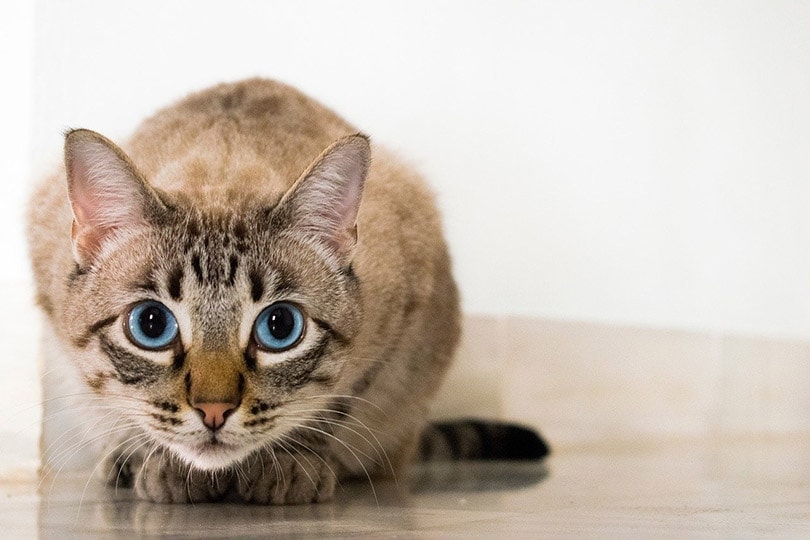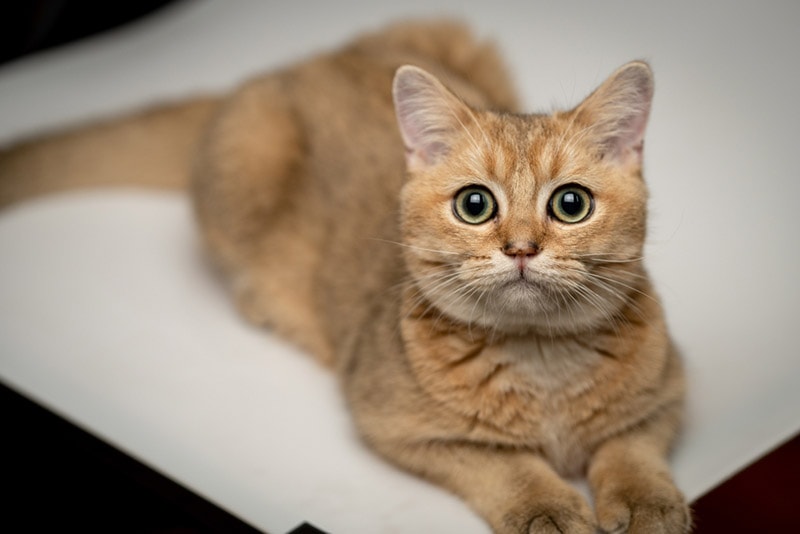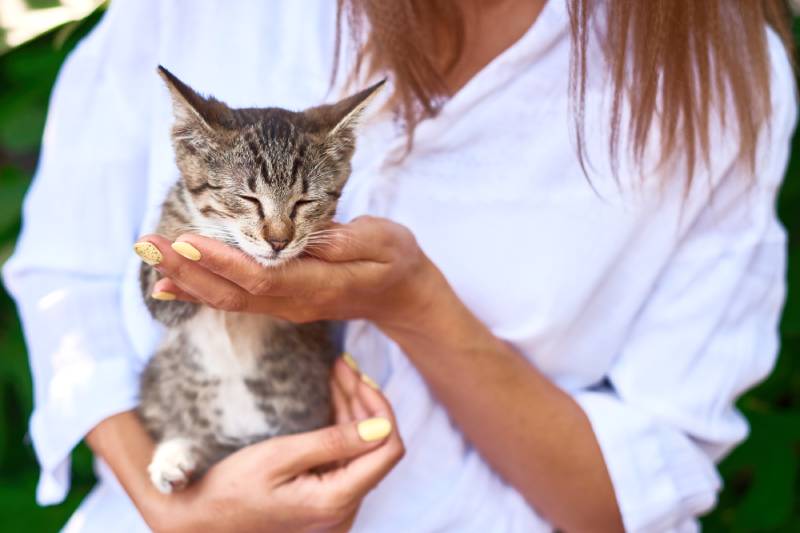Why Does My Cat Follow Me Everywhere? 8 Vet-reviewed Reasons for This Behavior

Updated on
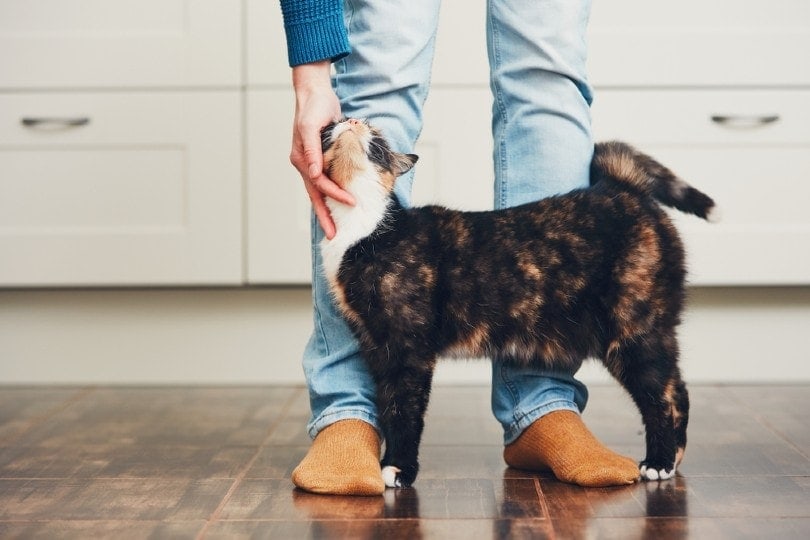
Most cats are usually independent creatures, happy to do their own thing without much interaction from their owners. Some cats, however, are more dog-like in their temperament and tend to follow their owners around almost constantly. This is an endearing quality, but the behavior can become overwhelming at times and may even cause concern for owners.
If you have a strong bond with your cat and they are following you around constantly, there is usually no reason to worry. However, if your cat is suddenly displaying this behavior, which is otherwise unlike them, it may point to an underlying health issue. Read on to find out the possible reasons for this clingy behavior.
The 8 Likely Reasons Your Cat Follows You Everywhere
1. Curiosity
Cats are extremely curious animals and can be downright nosy at times! They want to be wherever the action is and may simply be following you around purely due to their curiosity. Some cats love to know what you are doing at all times, from jumping up onto your keyboard while you’re working, wanting attention while you’re cooking, and even following you to the bathroom. It’s simply their innate curiosity for the world around them and their primary caregiver — you!
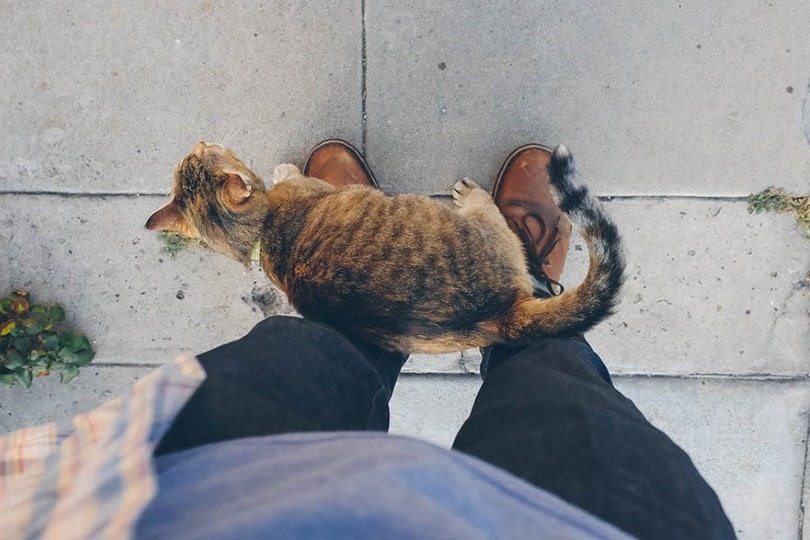
2. Attention
Some cats are independent and happy to be on their own most of the time, while others need far more attention than just feeding and occasional petting. In fact, many cats are just as affectionate as dogs but show it differently. Following you around may be a call for attention and petting, and they are patiently (or not!) waiting for you to sit down so they can settle in on your lap.
3. Food
Since cats are curious and have a keen sense of smell, anytime that you are preparing food or rustling a bag of treats is a sure invitation for them to check out what’s happening. The smells and sounds in the kitchen are too enticing for them, especially if dinnertime is near, and your cat may simply be hungry or angling for a taste of whatever it is you’re eating. They also may simply be hungry and are telling you, not so subtly, that it’s time to eat!
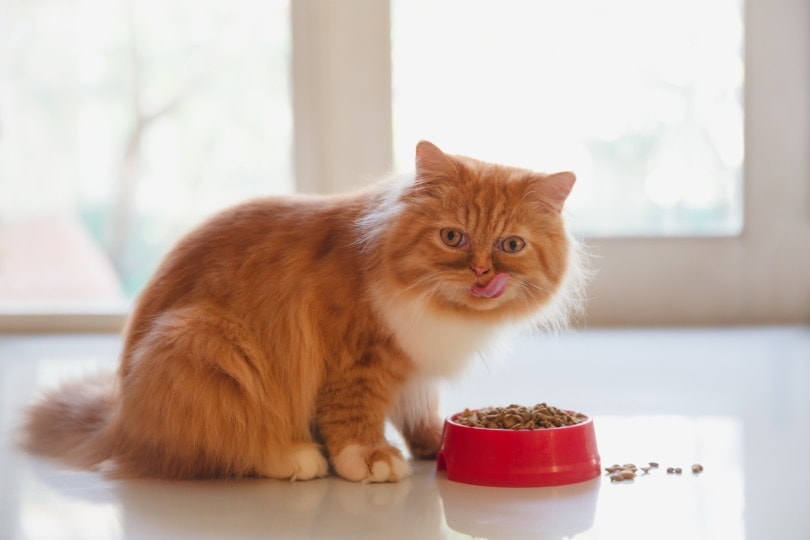
4. Safety
Most cats feel safe and secure in their owner’s presence. Even adult cats continue having a very affectionate relationship with their owners and are simply trying to stay close to their adoptive parents for safety. Since you are responsible for providing them with food, attention, and care, they may follow you into every room just to feel safe and protected. This behavior may reduce after your cat hits adulthood, but cats that are separated from their mothers too early may develop an overdependent relationship with their owners.
5. Fear and Anxiety
Some cats may follow their owners out of fear or anxiety. There may be a person, dog, or another cat around that they are afraid of and are staying close to stay safe. If you are away from home frequently, your cat may be following you more closely after you have returned. Contrary to popular belief, some cats can also suffer from separation anxiety if left alone at home, especially indoor cats, and this may be the reason that they become so attached to you.
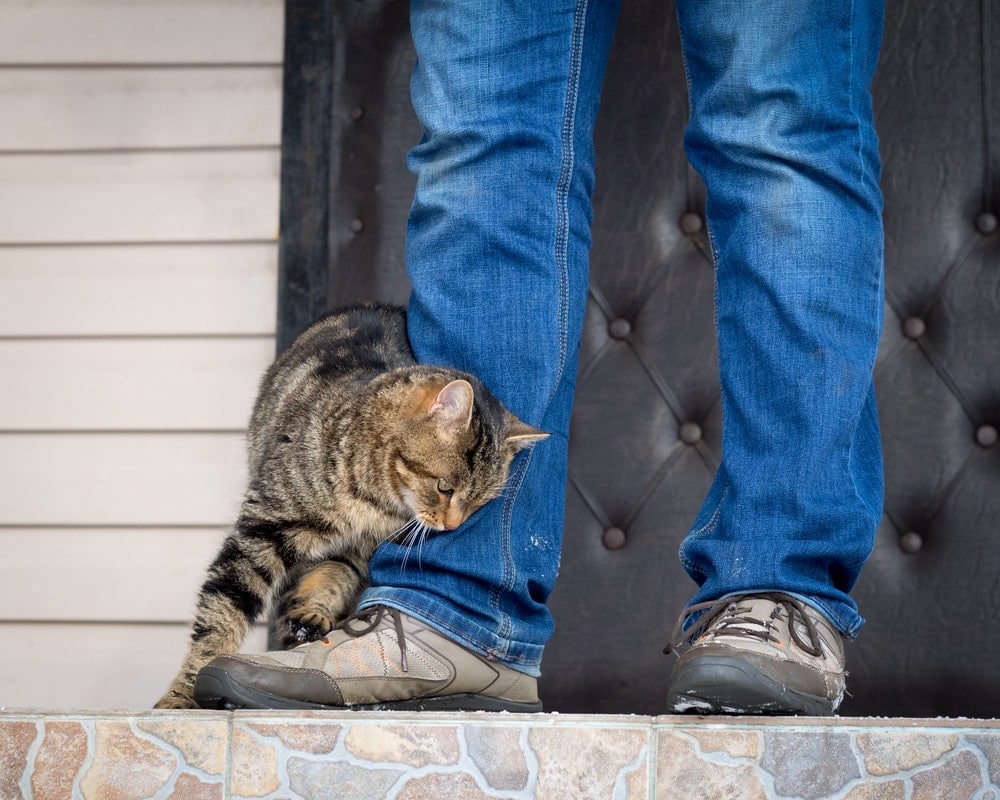
6. Routine
Routine is important to cats, and like most wild animals, cats develop their own routine for survival. Cats have their own time for napping, sleeping, playing, hunting, and eating, and the same may be true for spending time with their owners. Since most of your cat’s needs are taken care of and they don’t need to stick to the same routines that they would in the wild, they often develop new routines of behavior. Routine gives your cat comfort, and following you around the home may have become a routine and thus, comforting action for them.
This could also be their way of guarding their territory. While following you around, they can scan the perimeter and mark their territory by rubbing themselves over everything, including their most prized possession — you!
7. Play
Since domestic cats do not spend much time hunting, play is a vital part of their growth and development. Without this release of energy during hunting and the stalking and climbing involved with it, your cat will need an adequate replacement. They may follow you around the home as a part of their playtime and exercise, stalking your legs, hiding around corners, and running and jumping on things. It may also be that they simply need interactive playtime with you and are trying to coerce you into it. Toys are ideal for giving your cat playtime, as well as perches, ropes, scratch posts and cat trees, especially for indoor cats that don’t have access to living trees to climb on.
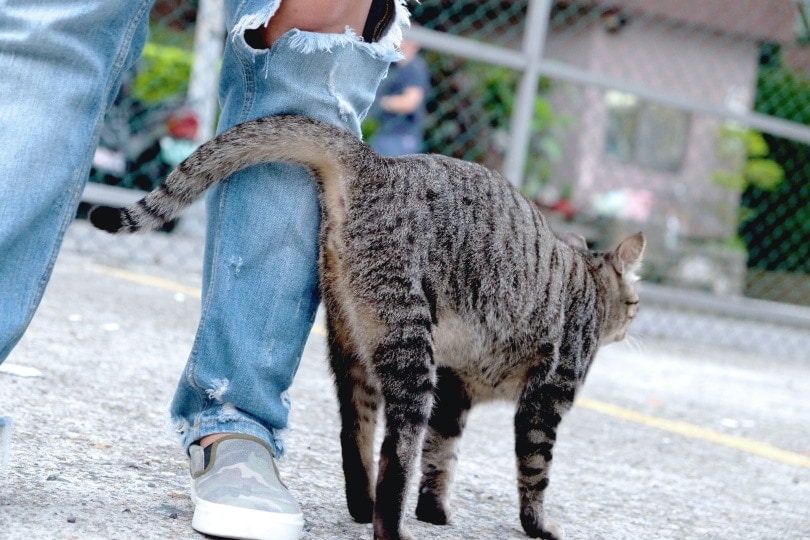
8. Underlying Health Issue
Most cats will hide when they are ill, and become quiet and withdrawn. Others may become clingy and seek your attention more than they usually would. If your cat generally does not follow you around often, and they have suddenly started doing it, it’s best to get them checked out by the vet, to make sure there isn’t an underlying health issue, particularly if they are older.
Cats may show other various changes in their behavior, such as increased vocalization and confusion particularly in older cats suffering from feline cognitive decline, overactive thyroid gland issues, or high blood pressure, alongside other signs such as changes in appetite, drinking, urination or defecation habits, or others.
 Final Thoughts
Final Thoughts
The biggest reason for your cat following you around the home is simply love and attention. Your cat loves you and wants to be close to you and involved with whatever it is that you’re doing. Cats need affection, and this may simply be their way of trying to get it. Most of the time, there is nothing to be concerned about, but if your cat is following you around excessively, if that isn’t something they have previously done, or they seem skittish or fearful, there may be an underlying health issue that needs veterinary attention or something in the home is causing them stress.
Related Read:
- How to Make a Cat Happy: 9 Simple Things You Can Do
- 5 Best Human-Grade Cat Foods – Reviews & Top Picks
Featured Image Credit: Jaromir Chalabala, Shutterstock


